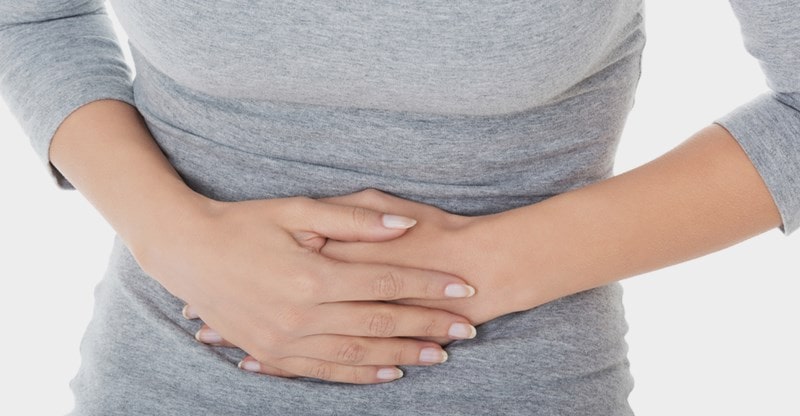A List Of The Top 10 Solutions For Chronic Stomach And Digestive Issues
It is pretty common to experience occasional digestive problems like gas, nausea, upset stomach, diarrhea, or constipation. However, if these problems occur frequently, you may face serious health issues in your life.
The digestive system is responsible for providing nutrients to your body by breaking down the food you eat. It may surprise you, but 80% of the health problems in our body are directly or indirectly related to digestive issues.
Your lifestyle and diet you take have a direct impact on your digestive health. Choosing the right diet can be overwhelming if you do not know much about the nutrition value of different food items. Adopting healthy habits and eating good food will not only help you improve your gut health but will enhance your sense of well-being.
It’s not medication but healthy habits that help you keep your system running smoothly. If you are struggling to improve your digestive health, read on to know the top solutions for chronic stomach and digestive issues.
Most Common Digestive Problems
Though there are many types of stomach and digestive issues, below are some of the most common digestion problems people face.
- Stomach Ache
- Indigestion
- Heartburn
- Constipation
- Diarrhea
There are many medicines for these digestive problems that are good for short term relief, but the right way to combat these health issues are changing our diet and lifestyle. Given below are ten solutions that can help you deal with stomach and digestive issues:
1. Eat A High-Fiber Diet
Eating a diet rich in fruits, whole grains, vegetables, and legumes can significantly improve your digestion system of the body. It helps in keeping the food in motion through your digestive tract that prevents constipation.
It helps you maintain a healthy weight while saving you from problems like diverticulosis, hemorrhoids, and irritable bowel syndrome (IBS). A well prepared high-fiber diet can help you with regular bowel movements. The most common types of fibers are soluble and insoluble fiber.
2. Eat Mindfully
Eating without paying attention can cause digestive problems like bloating, gas, and indigestion. Mindful eating habits result in a better digestive system.
If you don’t know the concept of mindful eating, try eating slowly, focus on your food, and pay attention to the look and taste of the food. It may not sound like a big deal, but it does improve your digestion significantly.
3. Drink Plenty Of Water
Staying hydrated is one habit that you can develop to have a good digestion system. Most health issues can be prevented if you give the body what it needs the most. Lack of enough water in the body is the primary reason behind constipation.
Apart from drinking water, you can also consider increasing the intake of fruits and vegetables that are rich in water content. Water is a natural stool softener that can help you smoothen your digestion process. Make sure you consume enough water that your fluid intake needs are met.
4. Exercise Regularly
Regular exercise helps your body to stay in shape while preventing you from digestive problems like constipation and other inflammatory bowel conditions. If you do not have time for a proper workout session, a simple walk after a meal can help you get things going in your stomach.
According to a study, activities like cycling and jogging can increase gut transit time by nearly 30%.
5. Stay Away From Substance Abuse
Habits like smoking and drinking alcohol can destroy your life. These things can even cause cancer and other lethal diseases. These things directly affect your digestion system. Smoking can increase the risk of developing acid reflux. Similarly, too much alcohol can cause heartburn, acid reflux, and stomach ulcers.
6. Incorporate Probiotics & Prebiotics Into Your Diet
Probiotics are healthy bacteria and yeast naturally present in your digestive tract. They combat the effects of a poor diet, stress, and antibiotics in your body. They help in increasing the strength of the immune system and absorb nutrients more effectively.
Make sure to include foods rich in probiotics such as kefir and low-fat yogurt. Just like probiotics, prebiotics also plays a significant role in keeping the digestive system running smoothly. You can eat bananas, oats, legumes for prebiotics.
7. Avoid Unhealthy Junk Food
Junk food is the biggest reason why people face digestion problems. Fried food or oily food contains elements that directly affect your heart, lungs, and stomach. If you eat junk regularly, you may not realize this now, but you will face digestion issues in the future.
8. Manage Your Stress
Stress directly impacts your digestion system as it is associated with problems like stomach ulcers, diarrhea, constipation, and IBS. When you are in stress, blood and energy are diverted from your digestive system.
You can practice daily meditation to manage your stress effectively. Stress can also cause problems like insomnia, where you may need to take sleeping pills as prescribed by the doctor. Apart from meditation, many types of relaxation training help in stress management.
9. Control Emotional Eating
If you eat whenever you are stressed, you may be dealing with the problem of emotional eating. It will not only significantly increase your weight but will also lead to other digestion problems. The habit of emotional eating is strong and hard to break, but not impossible.
Below are some of the best tips to combat emotional eating habits.
- Keep a food diary
- Take away temptation
- Fight boredom
- Tame your stress
- Get support
10. Avoid Late-Night Snacking
Most people eat when they are getting bored or stressed rather than from true hunger. Though it’s okay to have a snack once in a while, a habit of late-night snacking can lead to digestive problems. One of the best ways to combat late-night cravings is to boost protein and load up on fiber.
Conclusion
These are some prominent ways to improve your digestive health. These tips are tested and proved to be the most effective irrespective of your age and gender.
The first step toward good digestion is to eat a whole-foods diet high in fiber, healthy fat, and nutrients. Make sure you pay attention to what you are eating as being mindful about your body makes all the difference.



